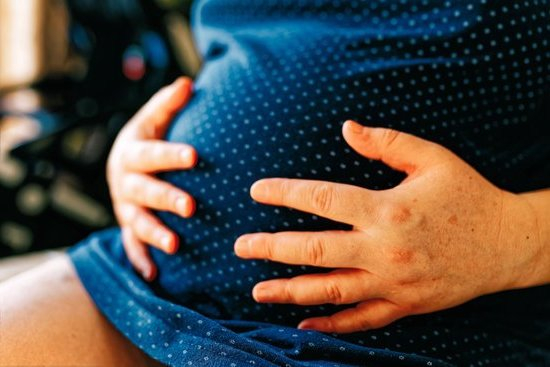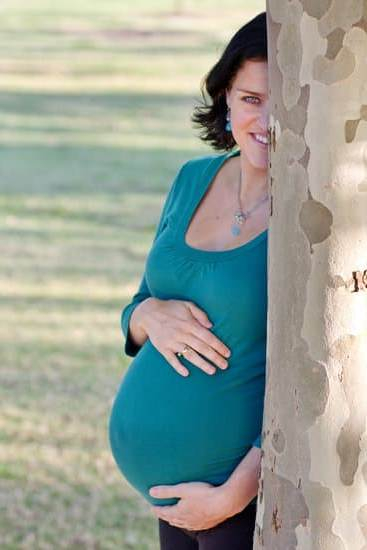How early can a pregnancy test detect? For many women, the desire to know whether they are pregnant is an urgent one. The need for early detection often stems from the natural curiosity and excitement surrounding the possibility of pregnancy. There is also a practical need for early detection, as it allows women to take appropriate steps to ensure a healthy pregnancy.
Pregnancy tests work by detecting a hormone called human chorionic gonadotropin (hCG) in urine or blood. This hormone is produced by the placenta shortly after a fertilized egg attaches to the uterine lining. Understanding how pregnancy tests function and what they detect is crucial in comprehending how early they can accurately detect pregnancy.
The menstrual cycle plays a significant role in determining when it is possible to detect pregnancy through testing. Every woman’s menstrual cycle is different, making it essential to understand its impact on early pregnancy detection. Additionally, factors such as stress, medications, and fertility treatments can also affect the accuracy of early pregnancy tests, influencing when they can reliably detect pregnancy.
Explaining the Science Behind Pregnancy Tests
Pregnancy tests work by detecting the presence of a hormone called human chorionic gonadotropin (hCG) in a woman’s urine or blood. This hormone is produced by the cells that will eventually form the placenta, and its levels increase significantly after implantation of a fertilized egg in the uterus. Most home pregnancy tests are designed to detect hCG levels in urine, while blood tests performed at a healthcare provider’s office can measure hCG levels in the blood.
When it comes to early pregnancy detection, the timing of the test is crucial. It is important to understand that hCG levels may not be high enough to be detected by a home pregnancy test in the very early stages of pregnancy. In general, most home pregnancy tests claim to provide accurate results as early as the first day of a missed period, although some more sensitive tests may advertise results as early as 6-8 days past ovulation.
In addition to detecting hCG, some advanced pregnancy tests on the market also have capabilities for estimating how many weeks have passed since ovulation based on the concentration of hCG in urine. Understanding how these tests work and what they actually detect is key in making informed decisions about when and how to use them for early pregnancy detection.
As such, it is essential for individuals to carefully read and follow the instructions provided with each specific test for optimal results.
Understanding the Menstrual Cycle and Its Impact on Early Detection
The menstrual cycle plays a crucial role in the timing of early pregnancy detection. Typically, a woman’s menstrual cycle lasts around 28 days, with ovulation occurring around day 14. This means that for women with regular cycles, their fertile window – the time when an egg may be fertilized by sperm – is around days 10 to 17 of their cycle. Understanding this timeline can help women determine when they might be able to take an early pregnancy test.
Factors such as the length of the menstrual cycle and the timing of ovulation can vary from woman to woman, making it important to track individual cycles and understand their own unique ovulation patterns in order to accurately predict how early they can detect a pregnancy. Furthermore, implantation bleeding, which occurs when a fertilized egg attaches to the uterine wall, typically happens around 6-12 days after ovulation and may coincide with the expected start of a woman’s period.
It is essential for women to have a thorough understanding of their menstrual cycle and its impact on early pregnancy detection in order to make informed decisions about when to take a pregnancy test. By tracking their cycles, being aware of ovulation signs and symptoms, and understanding implantation timings, women can more accurately predict when they may be able to detect a pregnancy using at-home tests.
Factors Affecting Early Pregnancy Detection
Several factors can affect how early a pregnancy test can detect the hormone hCG (human chorionic gonadotropin), which is produced during pregnancy. Stress, medications, and fertility treatments are three significant factors that can impact the accuracy of early pregnancy tests.
Stress can have an impact on your menstrual cycle and ovulation, which in turn can affect when implantation occurs. This means that if you are stressed, it could delay ovulation or even cause you to forgo your period altogether, making it difficult to know when to take a pregnancy test. Additionally, certain medications such as antihistamines or anti-anxiety drugs may interfere with the accuracy of a pregnancy test by affecting hormone levels in the body.
For women undergoing fertility treatments such as IVF (in vitro fertilization) or taking fertility medications, detecting pregnancy early is crucial. However, these treatments can also interfere with the accuracy of a pregnancy test. For example, fertility drugs that contain hCG may lead to false positives on a home pregnancy test. It is recommended to consult with a healthcare professional if you are undergoing fertility treatments and suspect you may be pregnant.
- Stress
- Medications
- Fertility Treatments
Popular Early Pregnancy Tests on the Market and Their Sensitivity Levels
When it comes to choosing a pregnancy test, there are numerous options available in the market. Each test varies in terms of sensitivity levels and how early they can detect a pregnancy. Understanding the differences between these tests can help women make informed decisions about which one to use.
Here are some popular early pregnancy tests on the market and their sensitivity levels:
1. First Response Early Result Pregnancy Test: This test is known for its high sensitivity, and it can detect pregnancy up to 6 days before your missed period.
2. Clearblue Early Detection Pregnancy Test: This test is also highly sensitive and can detect pregnancy as early as 6 days before your missed period.
3. EPT Pregnancy Test: Another widely used test, EPT has a sensitivity level that allows for accurate detection up to 5 days before your missed period.
It’s important to note that while these tests claim to be able to detect pregnancy early, their accuracy may vary depending on factors such as the concentration of hCG (human chorionic gonadotropin) hormone in the urine and the individual’s menstrual cycle. Additionally, false positives and false negatives can occur with any type of pregnancy test.
In order to maximize the accuracy of an early pregnancy test, it’s recommended to use first-morning urine when hCG levels are most concentrated. It’s also important to carefully follow the instructions provided with the test and consider retesting after a few days if you receive a negative result but still suspect you might be pregnant.
By understanding the sensitivity levels of different pregnancy tests and following best practices for accurate results, women can feel more confident in their ability to detect a potential pregnancy at an early stage.
The Earliest Possible Time to Take a Pregnancy Test for Accurate Results
Understanding the Menstrual Cycle and Its Impact on Early Detection
The menstrual cycle plays a crucial role in determining the earliest possible time to take a pregnancy test for accurate results. For most women, the average menstrual cycle is around 28 days, but this can vary from person to person.
Ovulation usually occurs around mid-cycle, approximately 14 days before the start of the next period. It is important to track your menstrual cycle and determine when ovulation occurred in order to understand when it is appropriate to take a pregnancy test.
Factors Affecting Early Pregnancy Detection
Several factors can affect early pregnancy detection, including stress levels, medications, and fertility treatments. Stress can delay ovulation or even cause you to skip a period, which can impact the accuracy of a pregnancy test.
Certain medications, such as fertility drugs or hormonal contraceptives, can also interfere with the results of a pregnancy test. Additionally, if you have undergone fertility treatments such as in vitro fertilization (IVF), it is important to consult with your healthcare provider about when it is appropriate to take a pregnancy test for accurate results.
The Importance of Choosing the Right Pregnancy Test
When considering how early a pregnancy test can detect pregnancy, it is crucial to choose the right test with high sensitivity levels. Some tests are more sensitive than others and may be able to detect lower levels of hCG (human chorionic gonadotropin), the hormone produced during pregnancy, earlier than others. It is important to read the packaging and instructions carefully to understand the sensitivity level of the test you choose in order to maximize accuracy in early pregnancy detection.
False Positives and False Negatives
When it comes to early pregnancy tests, understanding the accuracy of the results is crucial for women who are trying to conceive. A false positive result can lead to unnecessary excitement and disappointment, while a false negative result can lead to missed opportunities for prenatal care and healthy choices during pregnancy. It’s important to understand what factors can influence the accuracy of these tests.
One factor that can contribute to false positives or false negatives is the sensitivity level of the pregnancy test. Different tests on the market have different sensitivity levels, which determine how early they can detect the hormone hCG in the urine. Some tests are more sensitive and can detect lower levels of hCG earlier in a pregnancy, while others may require higher levels of hCG to produce a positive result.
Additionally, factors such as medications, fertility treatments, and stress can also impact the accuracy of early pregnancy tests. Certain medications and fertility treatments can affect hCG levels in the body, leading to inaccurate results. And stress can also play a role in hormone levels, potentially affecting the outcome of a pregnancy test.
Overall, understanding that there are factors that can affect the accuracy of early pregnancy tests is important for women who are trying to conceive. By being aware of these potential influences, women can make informed decisions about when to take a pregnancy test and how reliable the results may be.
Tips for Maximizing the Accuracy of Early Pregnancy Tests
Use the First Morning Urine
One of the best ways to maximize the accuracy of early pregnancy tests is to use the first morning urine for testing. This is because the concentration of hCG (human chorionic gonadotropin) in the urine is highest in the morning, which can increase the chances of getting an accurate result. It is recommended to avoid drinking too many fluids before taking the test as it can dilute the hCG levels in the urine.
Read and Follow the Instructions Carefully
To ensure accurate results, it is crucial to carefully read and follow the instructions provided with the pregnancy test kit. Each brand may have slightly different guidelines for taking the test, so it’s important to adhere to them for best results. Ignoring or misinterpreting these instructions could lead to false positives or false negatives.
Wait for a Missed Period
Although some pregnancy tests claim they can detect pregnancy as early as 5 days before a missed period, it’s generally more accurate to wait until after you’ve missed your period before taking a test. Testing too early may result in a false negative due to low levels of hCG in your system. Waiting until after your expected period date can increase accuracy and reduce the chances of misinterpreting results.
By following these tips, women can maximize the accuracy of early pregnancy tests and make informed decisions about their reproductive health.
Conclusion
In conclusion, knowing how early a pregnancy test can detect is essential for empowering women with knowledge about their own bodies and helping them make informed choices about their reproductive health. As discussed in this article, understanding the science behind pregnancy tests, the menstrual cycle, and factors that can affect early detection is crucial for accurately interpreting the results of these tests.
By being aware of the sensitivity levels of popular early pregnancy tests on the market and the earliest possible time to take a pregnancy test for accurate results, women can make well-informed decisions about when to test and what type of test to use.
It’s important to remember that false positives and false negatives are possible, so it’s crucial to follow the manufacturer’s instructions and consult a healthcare professional if there are any doubts about the result.
Ultimately, by arming themselves with knowledge about how early a pregnancy test can detect, women can take control of their reproductive health and feel empowered to make the best choices for themselves. Whether they are trying to conceive or wanting to prevent an unplanned pregnancy, having accurate information about early pregnancy detection is key in making informed decisions that align with their personal goals and desires.
Frequently Asked Questions
How Soon Will a Pregnancy Test Read Positive?
A pregnancy test can read positive as early as 7-10 days after conception, but for the most accurate result, it’s best to wait until you’ve missed your period.
What Pregnancy Test Will Show the Earliest?
The pregnancy test that will show the earliest is typically a sensitive early detection test or a digital test that can detect lower levels of hCG in the urine. These tests can provide results up to 6 days before your missed period.
How Long Does It Take for hCG to Show Up in Urine?
It takes about 10-14 days after conception for hCG to show up in urine at levels high enough to be detected by a pregnancy test. Testing too early may result in a false negative, so it’s important to wait for accurate results.

Welcome to my fertility blog. This is a space where I will be sharing my experiences as I navigate through the world of fertility treatments, as well as provide information and resources about fertility and pregnancy.





